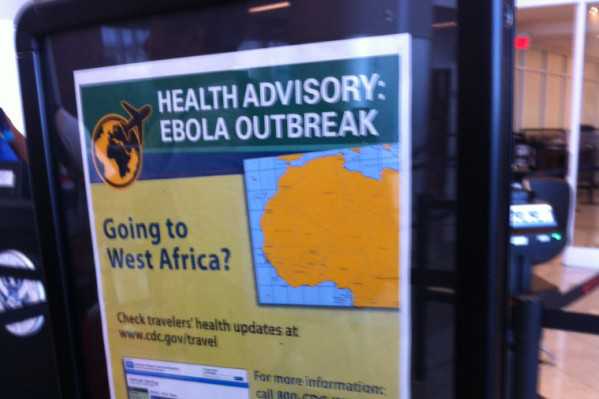A second case of Ebola has been confirmed after a Texas Health Presbyterian Hospital worker who had cared for recently-deceased Ebola patient Thomas Eric Duncan tested positive in a preliminary test on Saturday.
The Texas Department of State Health Services made the announcement in a statement early Sunday, adding that “confirmatory testing will be conducted by the Centers for Disease Control and Prevention.”
“We knew a second case could be a reality, and we’ve been preparing for this possibility,” said Dr. David Lakey, commissioner of the Texas Department of State Health Services. “We are broadening our team in Dallas and working with extreme diligence to prevent further spread.”
The health worker, who has not yet been identified, was infected while providing care to Duncan, the first confirmed case of Ebola in the United States. Duncan died last week.
The statement on the department’s website says that the “health care worker had a low-grade fever Friday night” and was immediately isolated and tested. Officials are now looking into who else might have been at risk of exposure. However, people infected with Ebola are not contagious until they show symptoms.
The Ebola crisis first reached the U.S. with Duncan, but has caused great harm in Africa. The World Health Organization reports over 8,300 Ebola cases in five African countries: Sierra Leone, Guinea, Liberia, Nigeria, and Senegal. More than 4,000 people have died from the disease.
The new case of Ebola in Texas is not the first transmission outside of Africa. A Spanish nurse, Teresa Romero, is in “serious, but stable” condition at a hospital in Madrid.
Those two cases are likely not the last. As the virus continues to ravage West African countries, aid workers have been helping in an attempt to stem the tide. Officials in their home countries warn that “spillover” may be inevitable.
“The big problem is in West Africa where the doubling rate is every four weeks and it really is going up and up, so it will not be surprising if we have spillover into this country,” Sally Davies, Britain’s Chief Medial Officer, told the BBC. “I would expect a handful of cases over the next few months.”
In the United States, new screening procedures for air passengers arriving from West Africa began this weekend in an attempt to minimize the possibilities of such a spread. According to The New York Times, only 77 out of 36,000 screened in Africa over the past two months were barred from boarding their flights, and none of those ended up having Ebola, which features symptoms similar to other infections like malaria.
When he arrived in the U.S. from Africa, Thomas Eric Duncan was not symptomatic, meaning he was also not contagious. But symptoms developed after a time and he was first denied help before being isolated and treated for Ebola. It was during that treatment that the health care worker at Texas Health Presbyterian Hospital contracted the virus.
Duncan died on Wednesday, two days before the second case of Ebola in Texas became symptomatic. According to the WHO, the virus has an incubation period of anywhere from two to 21 days between infection and symptoms.
[photo credit: CDC Global Health]